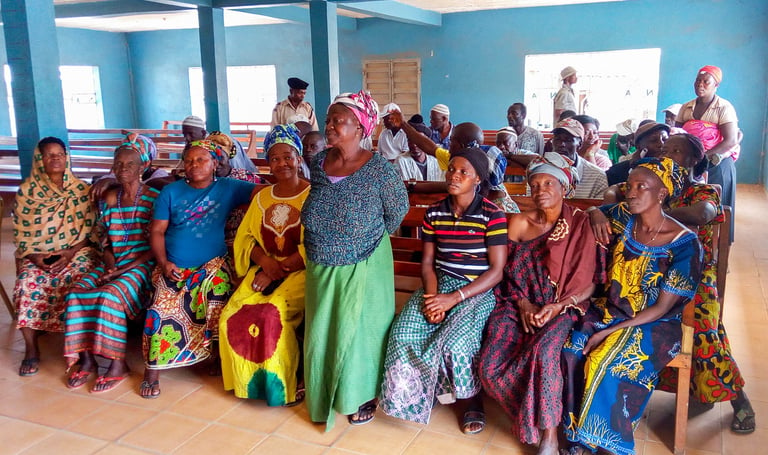Empowerment
Energy and women


Gender-related studies of the poor in sub-Saharan Africa, demonstrate that poverty affects women and men differently, with women often experiencing the most severe levels of deprivation, in part, demonstrated by inadequate access to cleaner energy options.
Many development projects have difficulties to understand to what extent the results are aligned to empowerment and gender equality, which is a key prerequisite for social change and development.
However, gender gaps remain large in low-income countries, especially at the primary and secondary levels in sub-Saharan Africa. Wider access to cleaner and affordable energy options can improve gender parity and school enrollment of girls. The cycle of exclusion from education and literacy arising from preoccupation with household chores of collecting fuel, water, cooking, cleaning and looking after younger children can lead to early onset of reproduction and a higher risk for maternal health caused by frequent multiple pregnancies.
Women are key users of energy for productive activities, and as is the case for productive employment for men, access to labor-saving energy-using technologies allows the amount of time spent on non-paid work to be reduced in favor of time spent on paid work, which greatly improves the overall welfare of women, their families, and especially their children.
Since in many areas women are the primary users of energy, especially for cooking, it makes sense for them to be involved in designing and implementing policies and projects to meet their own energy needs.
Available energy services can free girls’ and young women’s time from household activities (gathering firewood, fetching water, cooking inefficiently, crop processing by hand, manual farming work). This time can be productively used to generate more income or acquire education.
• Cleaner cooking fuels and equipment can reduce exposure to indoor air pollution and improve health.
• Street lighting can improve women’s safety.
• Modern, cleaner and affordable energy options can broaden the scope for women’s enterprises, thereby fostering employment and income generation among women.
• Representation of women at the national level can influence energy policies and investments to ensure wider access to cleaner and affordable energy options that benefit women.
• Specific policy initiatives that prioritize “women’s” or household energy needs, especially for fuels and mechanical power, can provide a balance to the focus on rural electrification, bringing about a host
of family welfare benefits.
